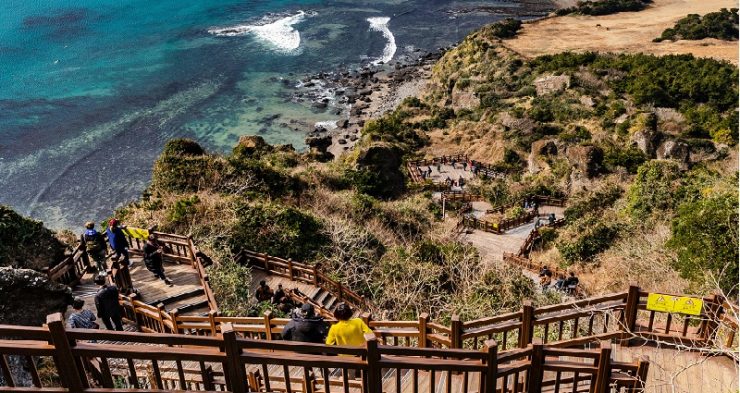FOR THOSE of you who are planning a vacation to Jeju Island in South Korea, it seems that you must be prepared to spend more money while you are there. Because, Jeju Island is considering a law that requires tourists to pay tourism fees to support environmental sustainability.
Reported by the Korean Times, later each tourist will be charged 1,500 won or around IDR17.000 per night, 5 thousand won or around IDR57.000 for those who rent a car, 10 thousand won or around IDR113.000 for minivans, and five percent of the cost of renting a bus.
“Each visitor will be charged an average of 8,170 won per day,” said a representative of the Jeju Provincial Government.
Furthermore, the authorities said that this is being considered. If this policy is later proposed and passed in the National Assembly, Jeju Island will generate around 141 billion won or equivalent to IDR1.6 trillion that goes to the government treasury after the first year. This figure will increase to 154 billion won in the second year and 167 billion won in the following year.
One of the popular tourist destinations in South Korea has long been considering measures to preserve their environment. This is based on locals’ concerns about the effects of the tourism boom, including garbage and waste that have increased beyond Jeju Island’s management capacity.
Previously, the local government had tried to introduce a Jeju Island entry fee policy in 2021, but was thwarted by opponents. Then, the Jeju Government in August last year asked the Korea Environment Institute, a state-owned research company, to study the feasibility of implementing an entrance fee to the island. After getting the results, the Jeju Government plans to propose the bill to the National Assembly this year.
According to the Governor of Jeju, Oh Young-hun, said that this entrance fee policy was planned very carefully, so, as to attract colorful support from all over the country.
“I am closely monitoring reactions from the central government, National Assembly, private businesses, and news outlets regarding this policy,” said Young-hun.
Jeju’s move comes after Hawaii lawmakers considered a policy to charge tourists a “visitor impact fee” to reduce the impact of overcrowding and help restore Hawaii’s environment. [sources/photo special]
















